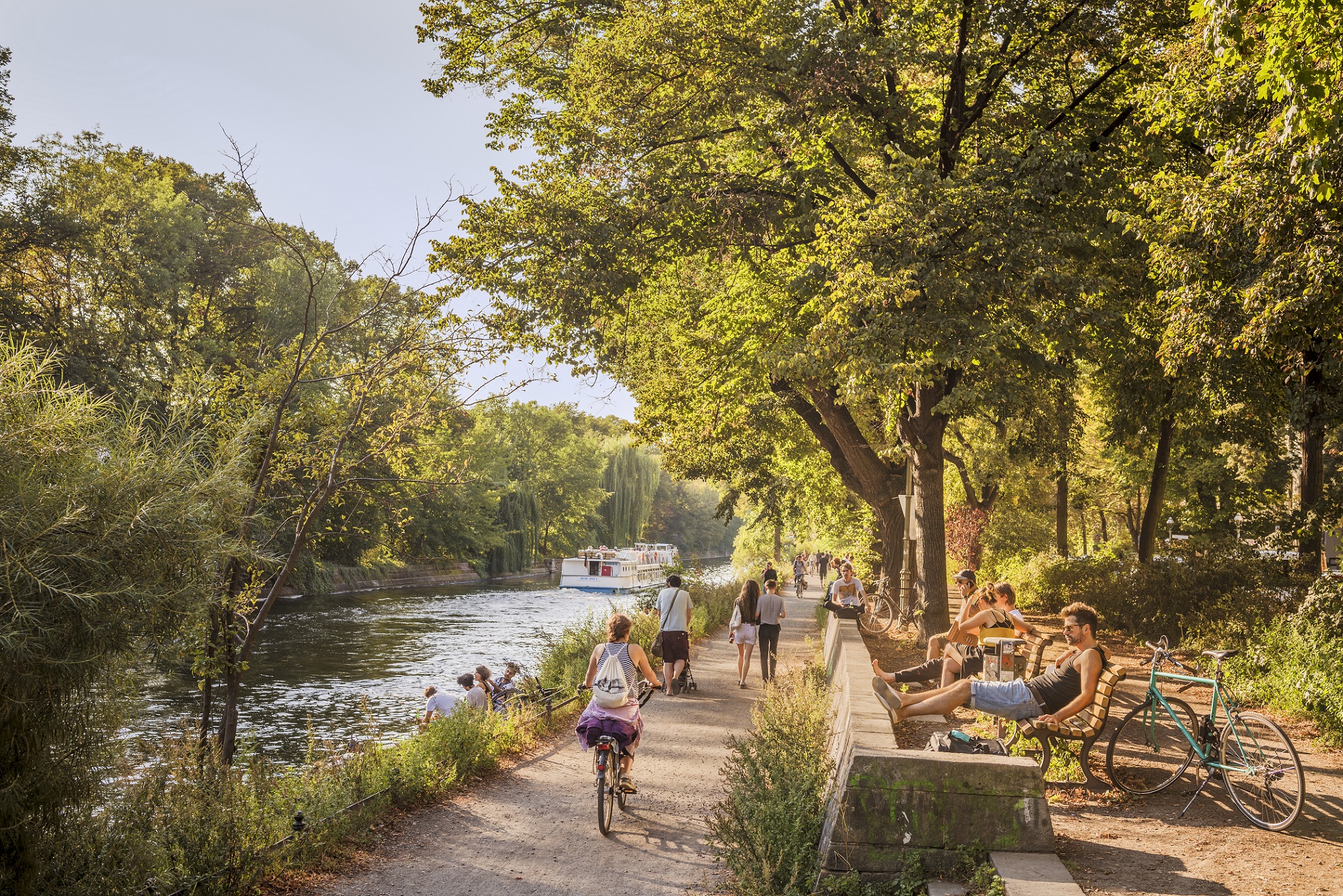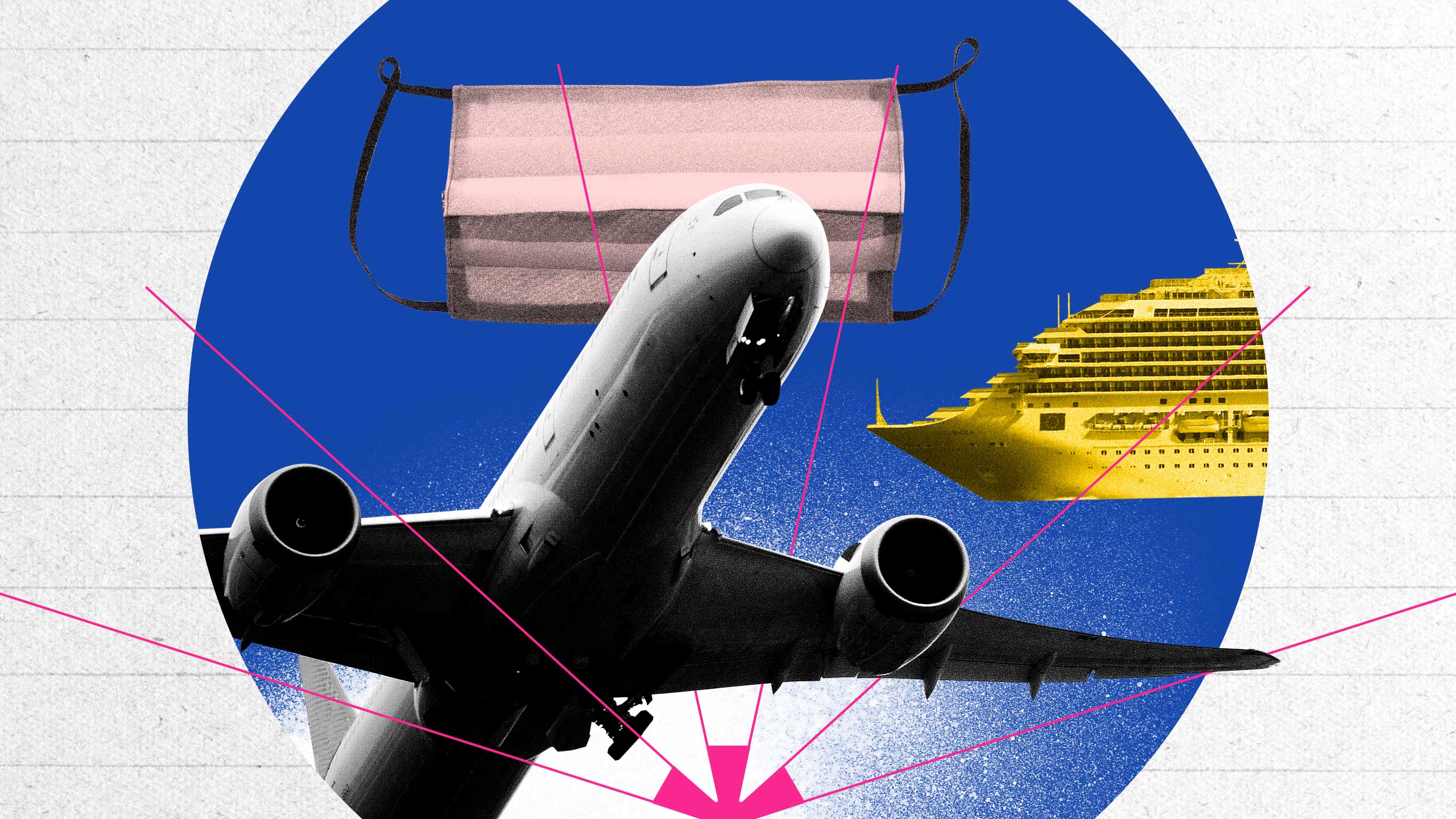Many countries have been making serious headway against COVID-19; hugs are happening, businesses are reopening, people are getting restless to experience new adventures. Canada, for example, is approaching its goal of having 75 percent of the population fully vaccinated, which will lead to more relaxed national and international travel. LGBTQ2S+ travellers, who tend to spend more on travel, travel more often and travel more internationally, are especially glad to be able to pack their suitcases again.
“Studies have shown our community to be a reliant, loyal travel segment with a tendency to travel more than their non-LGBTQ+ counterparts,” says John Tanzella, president and CEO of The International LGBTQ+ Travel Association (IGLTA). Their 2021 LGBTQ+ Post COVID Travel Survey found that 73 percent of respondents plan to take their next major vacation before the end of 2021.
But LGBTQ2S+ people headed to hot spots from Berlin to Bangkok should be prepared for a different experience than they’re used to, as various countries adapt different approaches to welcome back travellers. There will be myriad different requirements and restrictions dictated by health and safety protocols, as well as the judgment of owners of hotels, restaurants, bars, nightclubs and group travel companies.
“The guidelines are complex and fast-changing.”
As there isn’t a destination around the world that’s been immune to the sometimes unpredictable restriction changes, be prepared to spend more time than ever researching your destination. Some global queer tourism destinations do a better job than others keeping the information current on their websites.
“The guidelines are complex and fast-changing,” says Manuela Goya, vice-president of destination development and public affairs for Tourisme Montréal, one of Canada’s most popular LGBTQ2S+ destinations. “Since it is not so easy to understand how the official statements are applied, Tourisme Montréal keeps a dedicated section of its website updated with the latest guidelines and how it affects your activities when visiting.”
For example, since June 28, Montreal has permitted bars, breweries, taverns, casinos to open with 50 percent capacity, though customers must remain seated at their tables and dancing and singing are prohibited.
It is also important to remember that destination websites are often providing general guidelines. Travellers should still check with each restaurant, attraction or event to see if specific measures are being applied, particularly any requirements for entry. The most common measure is registration in advance, not simply due to capacity limits, but also because many places still require a system of contact tracing. Make a reservation no matter where in the world you are travelling.
If you are returning to a favourite spot, adjust your expectations of the experience: restaurants, hotels and attractions will likely have limited capacities, as well as sanitation and mask-wearing protocols.
So far, the United States appears to be the least restrictive major destination. In fact, some states had very few restrictions throughout the pandemic. Florida’s LGBTQ+ hotspot, Fort Lauderdale and its Wilton Manors gaybourhood, have been open for business for more than a year; the Sunshine State has allowed restaurants, bars, hotels and other attractions to operate at full capacity. Some events did change their dates. Miami Beach Pride, which is usually in June, was moved to September 2021, while Pride Fort Lauderdale, usually held in May, is happening October 2021. Street festivals, live entertainment and festive parades are all on the docket.
Fort Lauderdale was just recently the site of the cruise industry’s reboot; the first sailing out of a U.S. port since the onset of the pandemic was out of the city’s Port Everglades at the end of June. Most cruise lines, including gay-focused Atlantis Events cruises, require passengers and staff to be vaccinated. Guests may also be tested with a rapid test prior to boarding and may get tested again prior to departure. Most cruise lines have developed enhanced safety measures to keep their guests and staff safe, including more dining times, more show times and smaller shore excursion groups, all meant to allow for physical distancing.
But these measures don’t seem to be scaring people away.

Credit: Divers_Cité
“The phones are very busy and bookings are robust,” says Richard Safaty of Freedom Travel, which caters to the gay cruise and travel market out of Fort Lauderdale. “I expect the fall and summer season to be busier than normal. The local guest houses here in Wilton Manors are seeing extremely high occupancy levels with most sold out each and every weekend.” Safaty also warns that if you want to book a cruise for 2022 to do it now. “Demand for 2022 is very high. I have never in my 27 years in business had so many advanced bookings.”
Outside of the U.S., there’s less urgency to book because the scheduling of many events, especially circuit parties and Pride festivities, are still in doubt. Fierté Montréal Pride Festival, scheduled for mid-August, has adapted a hybrid format this year in order to adhere to public health guidelines. Madrid Pride, which took place the first weekend in July, is usually Europe’s largest Pride. But this year, large-scale public events were replaced by a number of street parties, while the parade was a march with no floats or stages. Spain, whose economy is highly reliant on international tourism, has shown an eagerness to keep nightlife venues open, but has sometimes had to step it back; in early July, several regions closed down nightclubs after cases spiked among young people. Saunas and sex clubs in Madrid and Barcelona, however, were open, though parties were cancelled and masks were required in public areas.
Other destinations have been more unequivocal in their reopening. Reykjavik, Iceland, intends to host its Pride festival in August with very few changes, largely due to how well the country has managed the pandemic. Fully vaccinated travellers to Iceland are no longer required to have a PCR test prior to, or upon, arrival. (The PCR test is considered one of the most accurate and reliable tests for COVID-19, but the results can take 48 hours or more and the tests usually cost more than USD$200.)
“Don’t count on visiting the city’s megaclubs and dark rooms, but outdoor dancing has been permitted.”
Canadians who have been fully vaccinated against COVID-19, or who have recovered from the virus, can visit Germany without quarantine or testing so long as Canada stays off the country’s list of risk areas. But the question remains about how much fun LGBTQ2S+ visitors can have on arrival. In Berlin, a world capital of queer culture, the reopening process has just started. A 2021 Berlin itinerary should include spending time at the city’s many parks and lakes, checking out open-air events and planning to sit outside at bars and restaurants. This could change, but keeping expectations in check and being flexible are key for travel this summer and fall. Don’t count on visiting the city’s megaclubs and dark rooms, but outdoor dancing has been permitted in some circumstances since June, partly to discourage illegal raves.

Credit: Dagmar Schwelle/Visit Berlin
Germany, along with the rest of the European Union (plus Switzerland, Iceland, Norway and Liechtenstein), is actively setting up a digital vaccine certification system, commonly referred to as a “vaccination passport.” Even though the Canadian government has been working with its European counterparts to help synchronize the requirements, the process has been slow and details on what Canadians will be required to do to enter Europe are still murky. Canadian travellers should ensure any purchases they make for travel this year come with cancellation clauses that offer the ability to rebook their vacation or receive a full refund. Despite pressure coming from the travel industry, the Canadian government is taking it slow and following public opinion polls, which show the vast majority of Canadians are nervous about the opening of international borders.
Robert Sharp, owner of Out Adventures, a Canadian tour and adventure company that caters to LGBTQ2S+ travellers, advises everyone to get travel insurance. “Travel insurance has never been so important. Some providers, such as Manulife, are now offering plans that cover unexpected quarantines and other COVID-19 related issues. It’s also important to understand that policies that include trip cancellation or COVID-19 coverage often need to be purchased almost immediately after a trip is booked or a deposit is paid.”
LGBTQ2S+ travellers looking to take advantage of pandemic deals may want to check out Thailand, which, up until now, had notably strict rules that mostly prevented international visitors from entering the country. Starting in July, Phuket, the island province where the famed gay beach destination, Patong Beach, is located, became the one destination in the country that is currently open to fully-vaccinated travellers—a kind of experimental tourism sandbox, complete with saunas and drag clubs. Visitors still have to be tested for COVID-19 on arrival but can move around freely after receiving negative results, usually within 24 hours; the province’s local population is about 70 percent vaccinated. In June, Thailand’s prime minister, Prayuth Chan-o-Cha, announced a plan to fully reopen the entire country by Oct. 15, but provided little details around the timeline.
“Yet all signs are that LGBTQ2S+ travellers are ready to spend.”
“Admittedly, the current spike of infections [in Thailand] and the lack of clarity on the needed requirements to enter the country may pose a challenge to summer travel. But with the rollout of mass vaccination campaigns gathering pace across Thailand, we expect many more destinations to open in the fall,” says David Linde, general manager of Thai-based tour operator Destination Asia. “With that said, Thailand’s travel and hospitality industries are offering great deals and plenty of flexibility when it comes to cancellation and amendment and payment terms.”
Sadly, many of the LGBTQ2S+ community’s treasured haunts around the world had to close during the pandemic. Banning the sale of alcohol was part of Thailand’s recent COVID-19 restrictions, resulting in popular clubs, bars and restaurants swapping cocktails for coffee and dance beats for dim sum. The reopening of clubs in Thailand and around the world, many of which may have lost months and months of income, remains uncertain.
Yet all signs are that LGBTQ2S+ travellers are ready to spend. Nearly one quarter of respondents in the IGLTA survey said they had made travel reservations in the past week. Queers seem eager to go on their next adventure, even if they’re not sure what they’ll find on arrival.


 Why you can trust Xtra
Why you can trust Xtra


